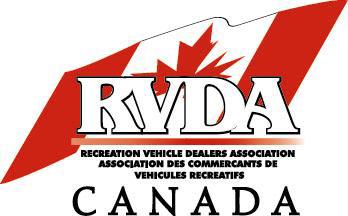RVDA MEMBER TARIFF RVDA MEMBER TARIFF ADVOCACY ADVOCACY GUIDE GUIDE



Welcome to the RVDA of Canada Tariff Advocacy Guide. This comprehensive guide is designed to help you become an effective advocate for addressing the pending retaliatory tariff situation in Canada through grassroots advocacy. We hope it provides you with the knowledge, tools, and inspiration you need to become a powerful advocate for our RV industry. Remember, every voice matters, and together, we can make a difference.
By following these best practices, you can ensure your meetings with elected officials are effective and impactful. Your engagement is crucial in shaping policies that benefit the RV industry in Canada.
For further support, contact the RVDA of Canada at info@rvda.ca or by phone at 604-718-6325.

Yourvoicematters,andyouradvocacycanmakeareal differenceinpreventingpoliciesthatcouldnegativelyaffect ourindustry.Weencourageyoutousetheseresourcesand reachouttoyourrepresentativestoshareyourconcerns.
TheRVDAofCanadawillcontinuetoworkdiligentlyon yourbehalf,butweneedyourengagementtoamplifyour message.Ifyouhaveanyquestionsorrequireadditional support,pleasedonothesitatetocontactus.
Thankyouforyourdedicationtoourindustry.Together,we canprotectthefutureofRVinginCanada.

At the RVDA of Canada, we remain committed to advocating for policies that protect and support our industry. As you may be aware, there is a potential threat of tariffs on RV imports that could significantly impact our businesses and consumers. In response, we have developed a MemberTariffAdvocacyGuide to help you engage with policymakers and stakeholders on this critical issue.
This guide is designed to provide you with the tools needed to effectively communicate the impact of tariffs on your dealership and the broader RV industry. Included in the guide, you will find:
GUIDANCE ON MEETING WITH ELECTED OFFICIALS
Best practices for scheduling and conducting effective meetings with MPs and decision-makers.
RV INDUSTRY WEBINAR ON TARIFF IMPLICATION
Watch this important webinar
TEMPLATE LETTERS
2 Pre-drafted letters that you can personalize and send to your local Member of Parliament, and government policymakers.
KEY MESSAGES & TALKING POINTS
Concise, impactful messaging to use when speaking with government officials, media, and customers.
DRAFT TEMPLATE FOR REMISSION REQUEST
The government will launch a remission process. Remission is the cancellation of Crown debt and can be granted under various statutory authorities. Please start gathering information now so that you are ready when the remission process begins.
BRIEFING LETTER SENT BY RVDA
An overview of the potential tariff issue, its implications for our industry, as presented to government.
Data and insights on how tariffs could affect RV affordability, jobs, and the overall economy.

1. The Tariff Would Devastate Canadian RV Dealerships
• 95% of RVs sold in Canada are manufactured in the U.S., leaving no viable domestic alternatives.
• The tariff would not harm U.S. manufacturers; instead, they would shift supply to U.S. dealers.
• Canadian dealerships would suffer from reduced inventory, increased costs, and financial hardship.
Significant Economic Impact on Jobs and Communities
• The RV industry supports 141,400 jobs and contributes $16.2 billion in added economic value.
• The industry generates billions in tourism spending and government revenue.
• Higher costs due to the tariff would lead to job losses and economic strain in local communities.
• A 25% tariff would make RV ownership unaffordable for many middle-class families and retirees.
• Consumers would face significantly higher prices or be forced into an inflated used RV market.
• The tariff discourages RVing, harming the broader tourism and outdoor recreation sectors.
• Dealers must pay the tariff upfront at the border, creating severe cash flow challenges.
• With an already weakened Canadian dollar, this additional cost could put many dealerships at risk of closure.

• Reduced demand and rising costs would disrupt business sustainability and longterm growth.
5. The RV Industry Has No Immediate Alternative to U.S. Supply
• Unlike other industries, there is no substitute for U.S.-manufactured RVs.
• If the tariff is implemented, Canadian dealers will struggle with limited inventory and reduced consumer options.
• The lack of supply would push consumers toward other markets, harming Canadian businesses.
6. Request to Exempt RVs from Tariffs
• The government should exempt RVs from the list of targeted products.
• Alternative trade strategies should be explored that do not unfairly impact a single industry.
• Engaging with industry stakeholders to find balanced solutions is critical.
7. Willingness to Discuss Further
• Canadian RV dealers are eager to share real-world insights into the impact of this tariff.
• Open dialogue with policymakers can help develop fair trade policies that protect Canadian businesses and consumers.
• Dealers welcome the opportunity to discuss potential solutions and alternatives.
For further discussion, please contact the RVDA of Canada.


Recreation Vehicle Dealers Association of Canada Association des Commerçants de Véhicules Récréatifs du Canada
The Honourable Dominic LeBlanc Minister of Finance
House of Commons Ottawa, ON K1A 0A6
February 5, 2025
Subject: Exclusion of U.S.-Manufactured Recreational Vehicles from Counter Tariff List
Dear Minister LeBlanc,
On behalf of the Recreation Vehicle Dealers Association (RVDA) of Canada and our members, we are writing to express our strong opposition to a proposed 25% tariff on U.S.-manufactured Recreational Vehicles (RVs) under Canada's countermeasures in response to U.S. trade actions.
While we fully support measures aimed at safeguarding Canada’s economic interests, we urge the government to carefully consider the collateral damage that these retaliatory tariffs may have on Canadian industries, including the RV sector.
The RV and camping industry is a critical economic driver in Canada, supporting 141,400 jobs and contributing $16.2 billion in added value to the national economy. This includes over $12 billion in direct expenditures, with RV owners and renters taking 7.7 million trips annually, generating $10.3 billion in tourism spending. The camping sector alone generates $9.8 billion in added economic value, supporting thousands of businesses, including campgrounds, repair shops, suppliers, and service providers. The industry was responsible for $7.6 billion to government revenues in 2023.
The Canadian RV industry is heavily reliant on U.S. imports, with approximately 95% of RVs sold in Canada originating from various U.S. states. Due to several factors, RV manufacturing capacity in Canada has become extremely limited, with fewer than ten manufacturers operating today primarily producing specialty products. As a result, our industry is entirely dependent on RV imports, and without an alternative supply chain available.
Given that Canada accounted for only about 6.5% of overall RV shipments in 2023, the proposed tariff would fail to pressure American policymakers and instead only disproportionately harm Canadian businesses and consumers. U.S. RV manufacturers
#145-11331 Coppersmith Way, Richmond, BC, V7A 5J9
Tel: (604) 718-6325 Fax: (604) 204-0154 www.rvda.ca info@rvda.ca


would simply redirect their units to U.S.-based dealerships, as they did during the COVID-19 pandemic, and would not experience the intended adverse economic impact.
Canadian RV dealerships, primarily small and medium-sized businesses, rely heavily on U.S.-manufactured inventory. With the current weakness of the Canadian dollar, a further 25% increase in costs with the necessity of paying the tariff at the border, would severely hamper Canadian dealerships cashflow and ability to operate while also pushing the price of RVs beyond consumers' reach.
Many dealerships would struggle to survive due to limited inventory, leading to job losses and economic challenges in communities across the country. RVing is a deeply ingrained part of Canadian outdoor culture, providing affordable family vacations and supporting domestic tourism, which has always been supported by this Government. A 25% tariff would make RV ownership prohibitively expensive for many Canadians, particularly middle-class families and retirees.
Unlike other industries where alternative sources may exist, there is no viable short-term replacement for the U.S. supply of RVs. Canadian dealerships would face extreme shortages, limiting consumer choice and driving demand towards used vehicles, which would also become more expensive.
For these reasons, we urge you to remove RVs from the considered list of products being proposed to counter US tariffs and instead look for more broad alternative measures that do not jeopardize a specific industry that supports thousands of Canadian jobs.
We would welcome the opportunity to discuss this matter further and provide any necessary data or testimonials to illustrate the detrimental impact this measure would have.
Thank you for your attention to this important matter. We look forward to your response and to working together to safeguard the interests of Canadian businesses and consumers.
Sincerely,

Eleonore Hamm, President
#145-11331 Coppersmith Way, Richmond, BC, V7A 5J9
Tel: (604) 718-6325 Fax: (604) 204-0154 www.rvda.ca info@rvda.ca



Recreation Vehicle Dealers Association of Canada Association des Commerçants de Véhicules Récréatifs du Canada
The Honourable François-Philippe Champagne
Minister of Finance
House of Commons Ottawa, ON K1A 0A6
March 18, 2025
Subject: Exclusion of Recreation Vehicles from Counter Tariff List
Dear Minister Champagne,
On behalf of the Recreation Vehicle Dealers Association (RVDA) of Canada and our members, we are writing to express our strong opposition to the proposed 25% tariff on U.S.-manufactured recreation vehicles (RVs) as part of Canada’s countermeasures in response to U.S. trade actions.
While we fully support efforts to protect Canada’s economic interests, we urge the government to carefully consider the unintended and disproportionate consequences such a tariff would have on Canadian industries, particularly the RV sector.
The RV and camping industry is a vital economic engine for Canada, supporting 141,400 jobs and contributing $16.2 billion in added value to the national economy. Each year, RV owners and renters take 7.7 million trips, generating $10.3 billion in tourism spending. The camping sector alone creates $9.8 billion in economic value, sustaining thousands of businesses, including campgrounds, repair shops, suppliers, and service providers. In 2023, the industry contributed $7.6 billion in government revenues.
The Canadian RV market is overwhelmingly reliant on U.S. imports, with approximately 95% of RVs sold in Canada manufactured in the United States. Due to long-standing industry dynamics, domestic RV production remains extremely limited, with fewer than ten manufacturers specializing in niche products. As a result, Canadian dealers have no viable alternative supply chain.
Of the 33,500 new RVs sold in Canada in 2024, 30,338 units were imported from the U.S. Small and medium-sized dealerships depend entirely on this inventory to remain operational. Unlike other sectors where alternative sources may be available, no shortterm replacement exists for U.S.-built RVs.
#145-11331 Coppersmith Way, Richmond, BC, V7A 5J9
Tel: (604) 718-6325 Fax: (604) 204-0154 www.rvda.ca info@rvda.ca
Compounding this challenge, the weak Canadian dollar has already increased costs for dealers and consumers. A 25% tariff would further strain cash flow, making it difficult if not impossible for many dealerships to sustain operations. Reduced inventory, rising prices, and declining sales would lead to job losses and economic hardship in communities across Canada.
For these reasons, we respectfully urge you to remove RVs from the list of products subject to counter-tariffs in Phase 2.
We appreciate your time and consideration and would welcome the opportunity to discuss this matter further.
Sincerely,

Eleonore Hamm, President Recreation Vehicle Dealers Association of Canada
#145-11331 Coppersmith Way, Richmond, BC, V7A 5J9
Tel: (604) 718-6325 Fax: (604) 204-0154 www.rvda.ca info@rvda.ca

MP NAME
House of Commons
Ottawa, ON K1A 0A6
Subject: Exclusion of U.S.-Manufactured Recreational Vehicles from Counter Tariff List
[Date]
Dear [MP NAME],
As a proud Canadian RV dealer, I am writing to express my deep concern and strong opposition to the proposed 25% tariff on U.S.-manufactured recreational vehicles (RVs) as part of Canada’s countermeasures to U.S. trade actions. While I fully support efforts to protect Canada’s economic interests, this tariff would have devastating consequences for my business, my employees, and my customers.
My dealership, like most others across the country, relies almost entirely on U.S.manufactured RVs, which make up approximately 95% of the Canadian market. With only a handful of Canadian manufacturers producing specialty products, there is no viable domestic alternative to replace this inventory. The proposed tariff would not harm U.S. manufacturers, as they would simply shift their supply to U.S. dealers just as they did during the COVID-19 supply chain crisis. Instead, it would cripple Canadian RV dealerships, increase costs for consumers, and put jobs at risk.
The RV and camping industry is a key economic driver in Canada, supporting 141,400 jobs and contributing $16.2 billion in added value to our economy. It generates billions in tourism spending and government revenue while providing Canadians with an affordable way to explore our country. However, a 25% tariff would drastically raise the cost of RV ownership, putting it out of reach for many middle-class families and retirees.
Beyond the impact on affordability, this tariff would cause severe cash flow issues for dealerships, as we would be forced to pay the tariff upfront at the border. Given the already weakened Canadian dollar, this additional financial burden could put many small and medium-sized dealerships in jeopardy, including my own. Reduced inventory, higher prices, and decreased consumer demand will result in job losses and economic hardship in communities across the country.
Unlike other industries where alternative sources may exist, the RV industry has no immediate substitute for U.S.-manufactured products. If this tariff moves forward, Canadian dealerships will be left with extremely limited inventory, forcing consumers
toward an inflated used RV market or discouraging RVing altogether damaging not just our businesses, but also the broader tourism and outdoor recreation sectors.
For these reasons, I urge you to exempt RVs from the list of targeted products under these countermeasures. Instead, I encourage the government to explore broader, more balanced trade strategies that do not unfairly single out one industry at the expense of thousands of Canadian jobs.
I would welcome the opportunity to discuss this issue further and share firsthand the real-world impact this tariff would have on Canadian RV dealerships and consumers. Thank you for your time and consideration. I look forward to your response.
Sincerely,

[Your Name]
[Your Dealership Name]
[Your Address]
[Your City, Province, Postal Code]
[Your Email]
[Your Phone Number]

The Honourable Dominic LeBlanc Minister of Finance
House of Commons
Ottawa, ON
K1A 0A6
CC: [Relevant MPs and Officials]
Subject: Exclusion of U.S.-Manufactured Recreational Vehicles from Counter Tariff List
[Date]
Dear Minister LeBlanc,
As a proud Canadian RV dealer, I am writing to express my deep concern and strong opposition to the proposed 25% tariff on U.S.-manufactured recreational vehicles (RVs) as part of Canada’s countermeasures to U.S. trade actions. While I fully support efforts to protect Canada’s economic interests, this tariff would have devastating consequences for my business, my employees, and my customers.
My dealership, like most others across the country, relies almost entirely on U.S.manufactured RVs, which make up approximately 95% of the Canadian market. With only a handful of Canadian manufacturers producing specialty products, there is no viable domestic alternative to replace this inventory. The proposed tariff would not harm U.S. manufacturers, as they would simply shift their supply to U.S. dealers just as they did during the COVID-19 supply chain crisis. Instead, it would cripple Canadian RV dealerships, increase costs for consumers, and put jobs at risk.
The RV and camping industry is a key economic driver in Canada, supporting 141,400 jobs and contributing $16.2 billion in added value to our economy. It generates billions in tourism spending and government revenue while providing Canadians with an affordable way to explore our country. However, a 25% tariff would drastically raise the cost of RV ownership, putting it out of reach for many middle-class families and retirees.
Beyond the impact on affordability, this tariff would cause severe cash flow issues for dealerships, as we would be forced to pay the tariff upfront at the border. Given the already weakened Canadian dollar, this additional financial burden could put many small and medium-sized dealerships in jeopardy, including my own. Reduced inventory, higher prices, and decreased consumer demand will result in job losses and economic hardship in communities across the country.
Unlike other industries where alternative sources may exist, the RV industry has no immediate substitute for U.S.-manufactured products. If this tariff moves forward, Canadian dealerships will be left with extremely limited inventory, forcing consumers
toward an inflated used RV market or discouraging RVing altogether damaging not just our businesses, but also the broader tourism and outdoor recreation sectors.
For these reasons, I urge you to exempt RVs from the list of targeted products under these countermeasures. Instead, I encourage the government to explore broader, more balanced trade strategies that do not unfairly single out one industry at the expense of thousands of Canadian jobs.
I would welcome the opportunity to discuss this issue further and share firsthand the real-world impact this tariff would have on Canadian RV dealerships and consumers. Thank you for your time and consideration. I look forward to your response.
Sincerely,

[Your Name]
[Your Dealership Name]
[Your Address]
[Your City, Province, Postal Code]
[Your Email]
[Your Phone Number]

1. Briefly outline your company’s operations: Details of corporate structure, location (HQ and any other locations), what it does, number of employees.
2. A detailed description of the goods on which you are seeking remission and the 8-digit tariff item or items that it is classified under. The 10-digit statistical level can be provided if applicable.
3. The volume and value, exclusive of surtaxes, of importations of goods, on an annual basis or for the specific period for which remission is requested. If goods have already been imported, provide the customs the name of the foreign producer/exporter. If goods have already been imported, provide the customs documentation (e.g., B3 forms) and relevant invoices of surtaxes paid.
4. Evidence demonstrating inability to source the product, or substitutes, from Canadian suppliers or reasonably from other non-American suppliers, including any request for proposal notice or the names of companies canvassed and, if possible, copies of replies from these companies. Any additional relevant information on the company’s sourcing model should also be provided.
5. Where contractual obligations or other factors prevent sourcing the product, or substitutes, from Canadian suppliers or reasonably from other non-American suppliers, provide substantiating evidence (e.g., copies of contracts)
6. Information on whether the inability to source the product or substitutes, from Canadian suppliers or reasonably from other non-American suppliers is temporary or transitional and, if so, for what period.

7. If the goods are used in a manufacturing operation, provide the cost of manufacturing one unit of the end product, broken down into:
a. Cost (exclusive of surtaxes) of goods on which remission of duties is sought;
b. Cost (exclusive of surtaxes) of other imported articles (please list);
c. Cost of Canadian materials (please list);
d. Labour;
e. Overhead;
f. Administrative and selling expenses;
8. The unit selling price for the end product, and information on the effect of the remission of surtaxes on its cost and price.
9. Information on the effect of remission on employment, volume of production, investment, or other relevant aspects of operations.
10.Names and locations of Canadian competitors, with information on how the remission may affect those companies. If available, provide information on whether those companies import similar goods, or whether they obtain comparable or substitutable goods from Canadian or foreign production.
11.Detailed comments on the reasons for requesting remission of surtaxes, clearly outlining the exceptional circumstances that merit consideration of the application, and making reference to the factual information provided in the submission.
12.Consent to share non-confidential information with domestic producers to validate information (and any conditions attached to that consent)

13.Any supportive or corroborative information, such as letters of support, independent studies, or market data.
14.Any other information that may be significant in illustrating why the remission is necessary.

Best Practices for Scheduling and Conducting Effective Meetings with MPs and Decision-Makers
Meeting with elected officials is an essential step in advocating for policies that support the RV industry. This guide provides best practices to help you schedule, prepare for, and conduct productive meetings with Members of Parliament (MPs) and other decision-makers.
Find the Right Contact
• Identify the MP or government official responsible for your area or industry concerns.
• Visit the Parliament of Canada website to find contact details.
• Consider meeting with a senior staff member if the MP is unavailable.
Request the Meeting
• Send a formal request via email or phone, introducing yourself and your dealership.
• Clearly state the purpose of the meeting (e.g., discussing potential tariffs on RVs and their economic impact).
• Offer flexible scheduling options to accommodate their availability.
• Follow up if you don’t receive a response within a week.
Confirm the Details
• Confirm the meeting date, time, and location (in person, virtual, or at their constituency office).
• Ask if any additional staff or advisors will be present.

Know Your Key Messages
• Develop 2-3 main talking points to stay focused.
• Use data and real-world examples to support your position.
• Review the RVDA of Canada’s Member Advocacy Kit for relevant materials.
Anticipate Questions
• Be ready to address potential concerns or counterarguments.
• Prepare concise answers to common questions, such as how the issue affects jobs, affordability, and local economies.
Bring Supporting Materials
• Print and bring copies of fact sheets, economic impact reports, and any letters or petitions.
• Prepare a one-page summary of your key messages to leave behind.
Start with Introductions
• Thank the official for their time.
• Introduce yourself, your business, and its role in the community.
• Establish a connection by mentioning shared interests or previous interactions.
Present Your Case
• Clearly outline the issue and why it matters to your business and the broader industry.
• Stay concise and focused on key points.
• Use personal stories or examples to illustrate the impact.

Engage in Discussion
• Ask for their perspective and listen to their concerns.
• Be respectful, even if they express opposing views.
• Offer solutions or alternative approaches when appropriate.
Make a Clear Ask
• Specify what action you want them to take (e.g., opposing proposed tariffs, raising the issue in Parliament, or meeting with industry representatives).
• If applicable, request a follow-up or ongoing dialogue.
Follow Up
• Send a thank-you email summarizing key discussion points and any agreed-upon next steps.
• Provide any additional information they requested.
• Keep communication open for future advocacy efforts.
Share Feedback with RVDA of Canada
• Let us know how the meeting went, and any insights gained.
• Provide feedback that can help refine advocacy strategies.
FEDERAL FEDERAL SUPPORT SUPPORT SUPPORT PROGRAMS PROGRAMS PROGRAMS

Trade Impact Program through Export Development Canada : $5 billion over two years to help exporters reach new markets and navigate economic challenges imposed by tariffs, including support for non-payment issues, currency fluctuations, cash flow challenges, and expansion barriers.
Business Development Bank of Canada Loans : $500 million in favorably priced loans available to businesses directly impacted by tariffs and companies in their supply chains. Additional advisory services in financial management and market diversification are also available.
EI Work-Sharing Program Flexibilities: Temporary expansions to increase access and maximum agreement duration. This program provides EI benefits to employees who agree with their employer to work reduced hours due to decreased business activity, helping to retain workers and avoid layoffs.
The Canada Small Business Financing Program helps small businesses obtain loans from financial institutions by sharing risk with lenders.
Trade Commissioner Services help businesses grow and diversify operations by connecting them with funding and support programs.
A remission process provides exceptional relief from the tariffs imposed as part of Canada's immediate response and any future tariff actions.